MENU
Our Strategy for Carbon Neutrality
The Daiwa House Group is promoting a strategy for carbon neutrality aimed at achieving virtually zero greenhouse gas emissions by 2050 under a basic approach of “doing everything we can by 2030,” and contributing to the realization of a sustainable society that supports the lives and lifestyles of future generations of children.
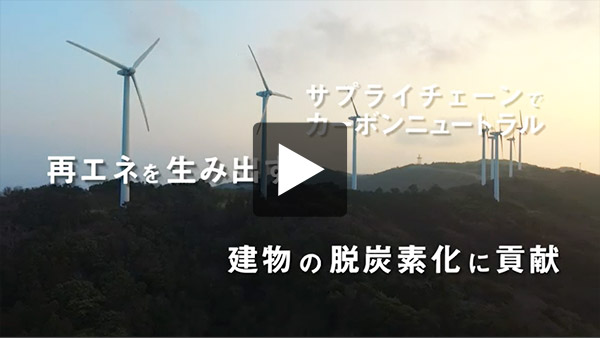
Our strategy for carbon neutrality (Japanese only)
We have always been committed to finding solutions to the social issues of the times. One such example of this took place in the 1990s, when global environmental issues were rising in prominence. We were quick off the mark in fully launching a power generation business using renewable energy sources, and developed renewable energy power plants throughout Japan. We also worked toward developing and promoting eco-friendly products.
In recent years we have seen a dramatic increase in the frequency and severity of weather-related disasters caused by climate change. Moreover, with the adoption of the Paris Agreement, nations around the world have changed course in dramatic fashion, setting their sights on decarbonization, while Japan has clearly stated its goal of becoming carbon neutral by 2050. In light of these circumstances, we believe that the promotion of decarbonization is critical for the Group, not only for it being our mission to protect the global environment, but also to seize business opportunities and to develop them globally.
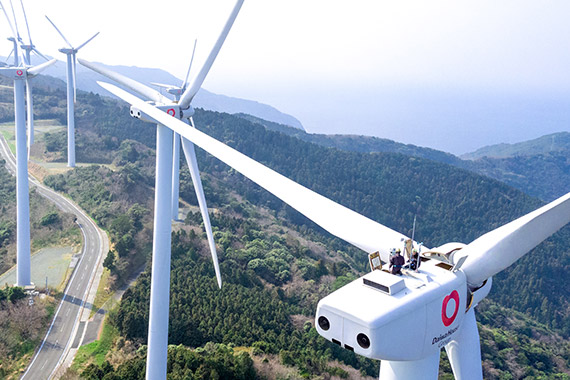
Wind power plant (renewable energy power plant)
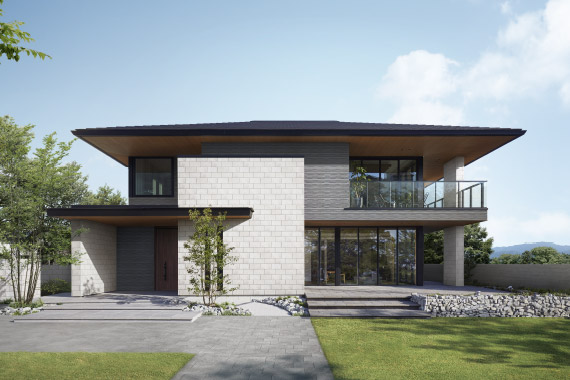
xevo Σ (sigma), a ZEH-compatible product
(eco-friendly product)
We formulated our carbon neutral strategy under the 7th Medium-Term Management Plan (fiscal 2022-2026). We create a mechanism in which the more buildings we construct, the more renewable energy is spread in society, thereby accelerating our efforts to decarbonize.
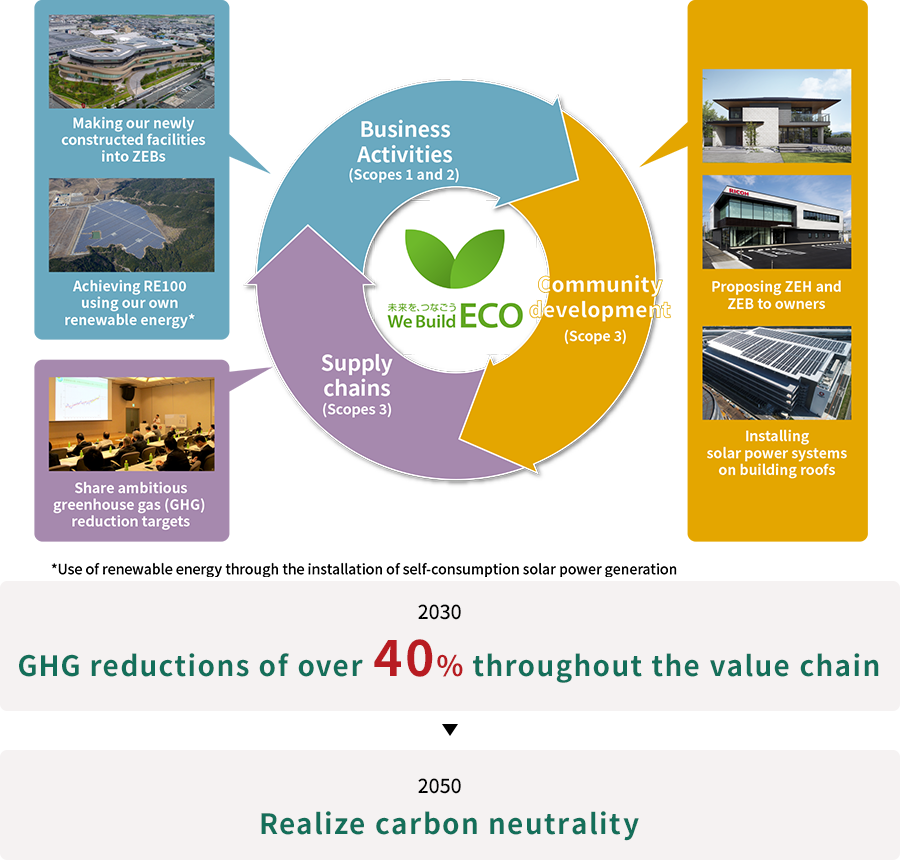
In 2018, the Group became the first housing and construction industry company in the world to simultaneously participate in the three international initiatives of SBT, EP100, and RE100.
Through energy conservation and renewable energy initiatives, we will achieve our SBT-certified GHG emissions reduction targets.

The Group’s target is to reduce GHG emissions by 40% by 2030 (compared to fiscal 2015 levels) and to achieve carbon neutrality by 2050. To meet this goal, we aim to realize carbon neutrality at all three stages of the value chain, namely business activities, community development, and the supply chain.
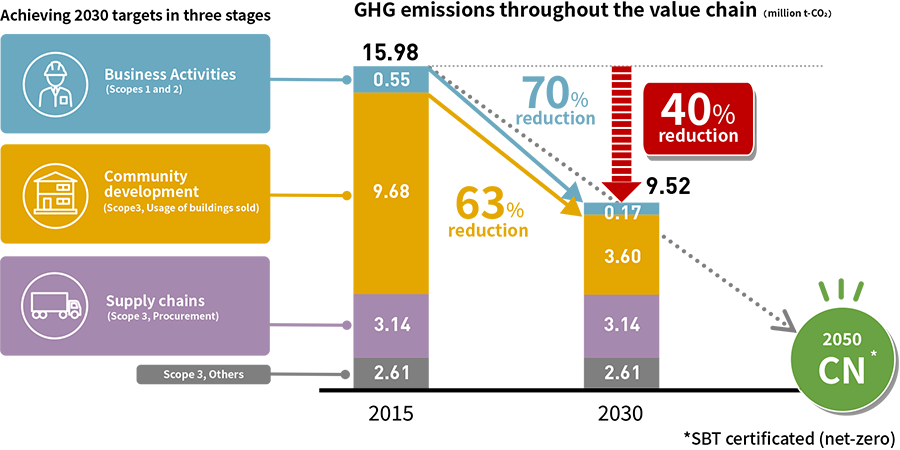
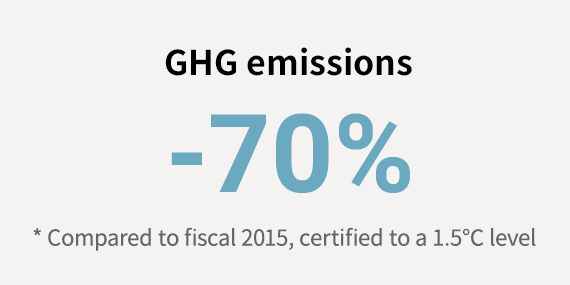
To reduce GHG emissions in our business activities, we have set targets and are promoting initiatives based on the keywords of “energy saving,” “electrification,” and “renewable energy.”
for details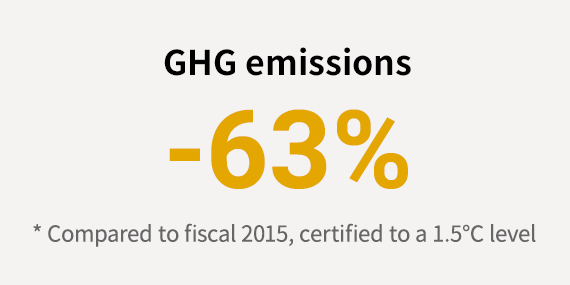
In both housing and business areas, we have set targets and are promoting initiatives with the keywords of “ZEH/ZEB* + solar power generation systems installation” for all buildings.
* ZEH(-M)/ZEB: Refers to Zero Energy Houses (and condominiums), and Zero Energy Buildings that are designed to achieve net zero primary energy consumption yearly, by improving the energy-saving performance with insulation and energy-efficient equipment, and creating energy through solar power generation or similar means.
for details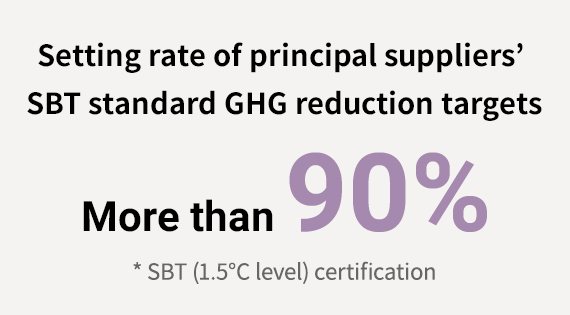
The Group shares GHG emission reduction targets, in line with the Paris Agreement, with more than 90% of major suppliers by 2025 and cooperates in energy-saving and renewable energy initiatives. By achieving these targets by 2030, we aim to achieve carbon neutrality in our supply chain by 2050.
In our efforts to reach these targets, we are undertaking sustained engagement, having launched a decarbonization working group and decarbonization dialogues. We are also creating new value together with our suppliers by providing energy-saving and energy-generating solutions cultivated through our own decarbonization experience.
We will bring to the world our own distinctive brand of “sustainable community development” that leads to decarbonization by relying on our exceptional ability to support a wide range of building types, from houses to commercial facilities.
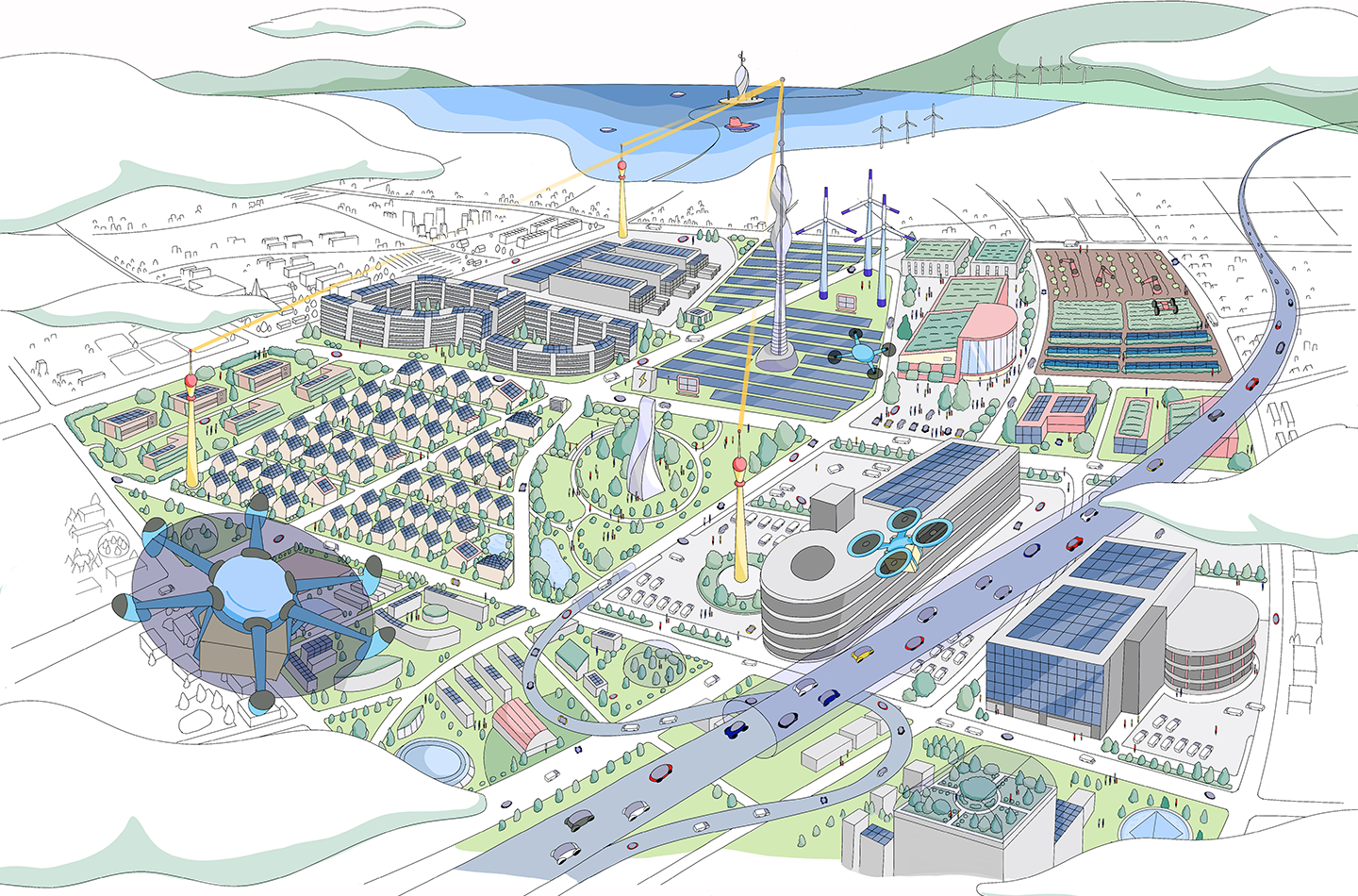
The name given to our new suburban mixed-use development concept, KoRekara, incorporates the “three Re” into the Japanese word for “from now onward.” Under this concept, we seek to expeditiously achieve what is possible—reality—within the constraints of current technology, to cover 100% of a community’s power needs with renewables to promote decarbonization and local consumption of energy, achieving resilience—the robust value that can maintain and recover business and lifestyles even in the event of natural disasters.
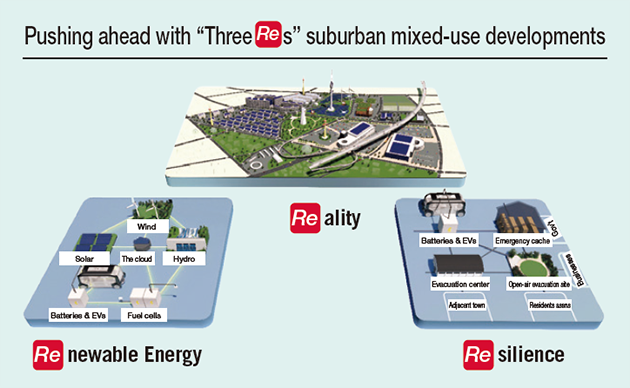
Lifestyles of all varieties are evolving along with the growth of e-commerce, the increasing popularity of teleworking, and the development of digital transformation (DX). In support of such new ways of living, we will move forward on the development of communities where people can experience for themselves the reality that comes with new value, that being a style of living supported 100% by renewable energy and that has the resilience to stand up well to disasters.
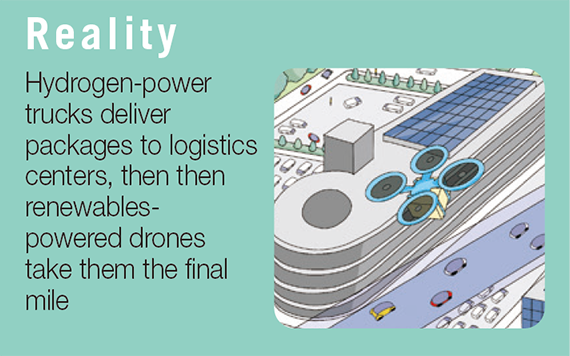
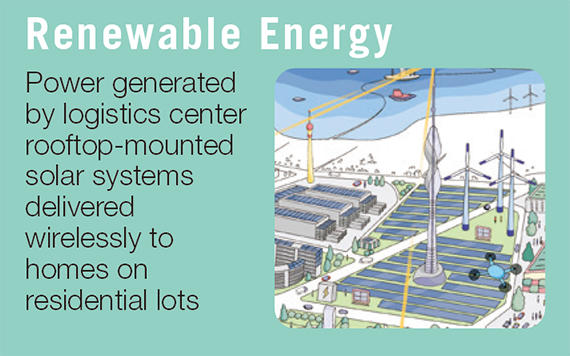
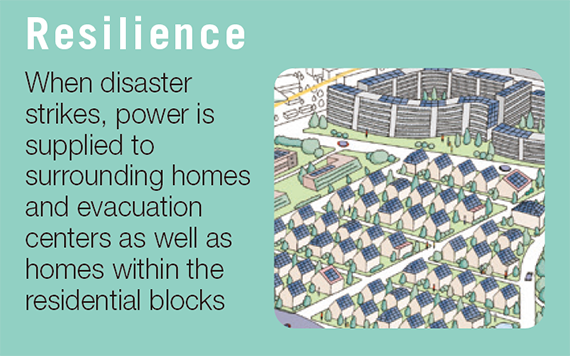
* These are mere example ideas that we are working to transform into reality.